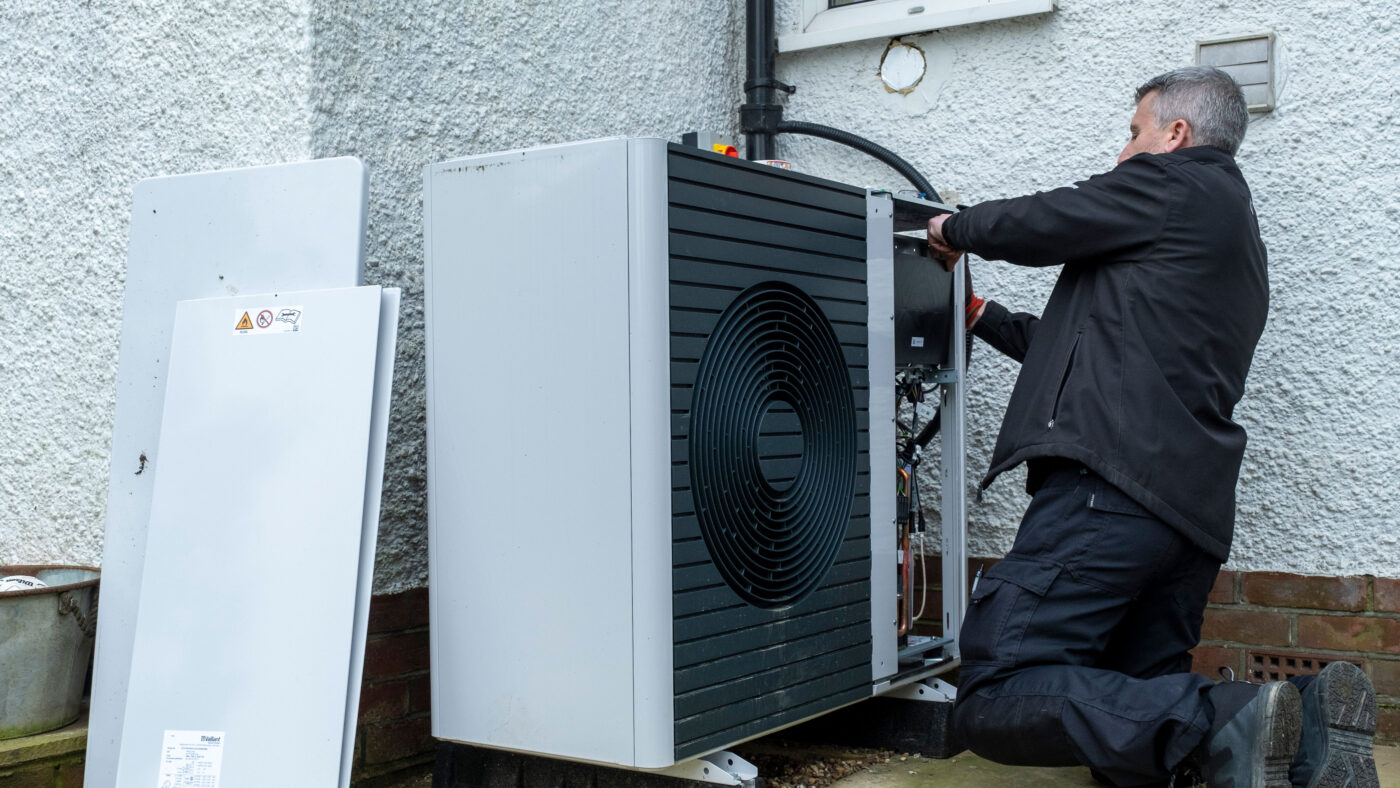Thursday was supposed to be ‘green day’, when the Government was going to reveal its latest plans for reaching net zero by 2050. But what was delivered merely served to underline how far that Britain is from achieving that target.
The public simply isn’t taking up the bait. As Sir John Armitt, chairman of the National Infrastructure Commission, put it this week: ‘Government comes forward with these big ideas but what you don’t see is the necessary detail to back that up’.
Take heat pumps. This is one of the biggest strands of the net zero plans. By 2035, the Government confirmed yesterday, it wants to ban the installation of new and replacement gas boilers. But it is also relying on persuading 600,000 homeowners a year to decommission their existing gas and oil boilers and replace them with a heat pump.
How is it doing?
In 2021 just 55,000 people took the plunge. And that is in spite of generous government incentives. The current Boiler Upgrade Scheme offers vouchers of £5,000 towards the cost of a new heat pump. For the very smallest property, that helps bring down the cost of a heat pump to close to the cost of a new gas boiler. For larger homes, heat pumps will cost £13,000, according to the Energy Savings Trust. So there is still a large disparity in cost.
Moreover, there are plenty of stories of people who have fitted the devices and find that they produce insufficient heat – thanks to heat pumps operating at lower temperatures than traditional central heating systems. This is especially true for older homes, such as the 7.8 million properties built with solid walls. To insulate those walls to a modern standard, according to the Energy Savings Trust, will cost a typical homeowner between £8,500 (if fitted internally) and £12,000 (if fitted externally). Nor, by the way, will a heat pump save you in running costs. The price of gas may have been sky-high over the past 18 months, but so too have electricity prices.
What, then, is the incentive to swap a perfectly well-functioning gas boiler with a more expensive heat pump? Government ministers keep telling us that net zero will save us money because green energy will turn out to be cheaper than fossil fuels. But that is simply not the case to anyone contemplating switching to a heat pump. To take the Government’s bait you really have to be acting out of social conscience – to think you are doing the planet a favour by switching to electric heating. Trouble is, there are only so many people who can afford to make such gestures – and many more might be disinclined to do so, even if they can afford it.
It is the same with electric cars. Sales grew quickly during the pandemic, when relatively few cars were being sold – and when there were still generous subsidies available on electric cars. But now they have stalled. In February 2023, according to the Society of Motor Manufacturers and Traders, 16.5% of new cars registered were pure electric models. This was a little lower than the 17.7% of the market captured by such cars in the same month a year earlier. Yet the Government has target for 28% of all new cars to be pure electric in just two years’ time.
It should be clear by now that electric cars, like heat pumps, are not going to sell themselves. This is in spite of a huge tax penalty on petrol and diesel cars. Buy a litre of fuel and around 60% of what you pay is tax. Recharge your electric vehicle at home, on the other hand, and you pay just 5% VAT.
Moreover, subsidies for heat pumps and electric cars can’t last forever. The Government is offering 90,000 vouchers of £5,000 each for heat pumps. Grants for the purchase of electric cars have already ended. So too has the exemption from London’s congestion charge. Nor can the Government be expected to sit by and wait as the £28bn of annual fuel duty revenue ebbs away. Sooner or later, owners of electric cars are going to be hit by road pricing, or some other tax.
At some point the Government is going to have to be honest and admit that, contrary to what they have been saying for years, net zero is not going to save you money. At that point it will have an unpalatable choice: force us, cajole us into switching to electric cars, heat pumps and the like – or drop its 2050 target and allow technology to catch up to the point where it offers solutions which really do make economic sense.
Click here to subscribe to our daily briefing – the best pieces from CapX and across the web.
CapX depends on the generosity of its readers. If you value what we do, please consider making a donation.


